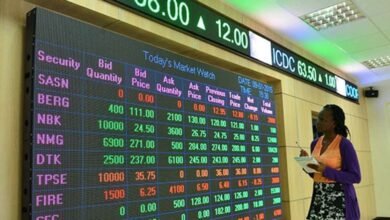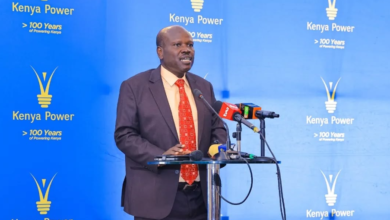
Kenyan traders engaged in small-scale importation of goods will now be able to clear their cargo faster under a new taxation processing agreement between consolidators and the Kenya Revenue Authority (KRA).
This follows an intervention by a technical committee of Permanent Secretaries led by Interior Principal Secretary Dr. Karanja Kibicho who said importers of low-volume goods would have their taxes due to KRA billed separately even where the imports have been consolidated into a shared container shipment.
The new arrangement is intended to resolve current delays in clearance at the Deconsolidation centre in Nairobi.
“Unlike before where a container which has one small-scale trader violating our import regulations would then inconvenience everybody else who had consolidated in that container, it is now easy for individual traders to come and pick their goods. This has been made possible because the regulators have camped here to ensure that taxes are paid and that there is order in this place,” said PS Kibicho.
Also Read:
- Security personnel mount crackdown on traders flouting potato regulations
- Kenya’s small traders now eye India, as coronavirus scare shuts them out
- Traders in Uganda arrested for hiking commodity prices
Traders will now have full government backup through pragmatic taxation policy. The rationalised freight deconsolidation’s ultimate goal is to streamline inbound logistics for traders and encourage the growth of small and medium-sized enterprises in the country.
Gazetted as “Kenya Railways Transit Shed”, the facility began operations in October 2020 to allow Kenya Railways Corporation (KRC) to move cargo containers directly from the Port of Mombasa to Nairobi under quick customs clearance, monitoring, billing and collections of imported products.
According to Dr. Kibicho, for every container that arrives at the facility, KRA receives a customs tax of Ksh.2.2 million, which is paid by the importers based on the volume their goods occupy in the container.

“We also won’t allow the consolidators to trade with taxes. This will ensure that the amount of money that traders are supposed to pay to KRA as tax should be the exact figure indicated on the invoice sent to them by the consolidators. The rest will be logistical costs that each of them will bear based on their agreement with the consolidator.”
PS Kibicho said the Government will shift its focus on the war on counterfeits, substandard goods and prohibited merchandise to regulators who cannot flag out the importation of such goods.
he challenged the Kenya Bureau of Standards (KEBS) and the Anti-Counterfeit Authority (ACA) to address any violation of the Kenyan standards of the country of origin citing complaints from traders about harassment from agencies.
Moving forward, traders engaged in small-scale importation of goods will now see clearance of their cargo done faster under a new taxation processing agreement, a reprieve which will see them save on transportation, inventory and facility costs thanks to the Centre.





